YEN BAI According to Minister Le Minh Hoan, silk products need to pay more attention to organic production, geographical indications... to increase value and competitiveness.
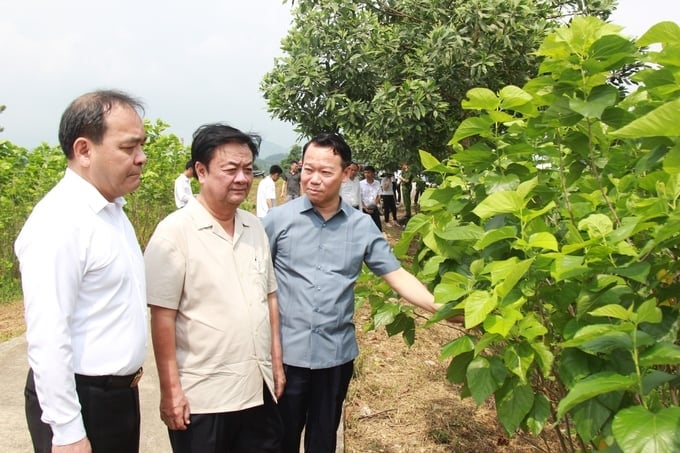
Minister of Agriculture and Rural Development Le Minh Hoan (center) and leaders of Yen Bai province visit mulberry fields in Viet Thanh commune, Tran Yen district. Photo: Thanh Tien.
On June 22, Minister of Agriculture and Rural Development Le Minh Hoan and his delegation visited mulberry cultivation and silkworm raising models according to the value chain in Tran Yen district, Yen Bai province. The delegation was received by leaders of Yen Bai province and related departments.
Here, Minister of Agriculture and Rural Development Le Minh Hoan visited the concentrated mulberry growing area in Viet Thanh commune (Tran Yen district). The whole commune has a total mulberry area of over 220 hectares, concentrated in villages along the Red River such as Lan Dinh, Truc Dinh and Phuc Dinh. Currently, the whole commune has over 250 households raising silkworms, has established 3 cooperatives, 40 cooperative groups and 3 production chains linked with Yen Bai Mulberry and Silk Joint Stock Company. The average cocoon output reaches nearly 500 tons/year, with an income value of nearly 100 billion VND.
Next, the delegation visited Hanh Le Mulberry Cooperative in Viet Thanh Commune. Currently, the Cooperative is associated with 3 cooperatives with 56 members. The mulberry business area is 2.5 hectares with a 150m2 silkworm breeding facility, annually supplying an average of over 2,000 silkworm rings to large silkworm breeding households in neighboring localities, bringing in an income of over 600 million VND/year.
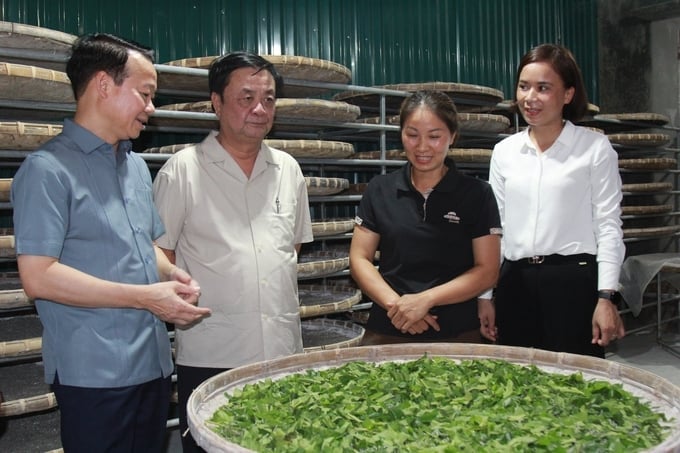
After more than two decades, Tran Yen district has formed a mulberry growing and silkworm raising area of more than 1,000 hectares. Photo: Thanh Tien.
Ms. Nguyen Thi Hong Le, Director of Hanh Le Cooperative, shared that in the past, because there were no silkworm farms, raising silkworms in both stages (from eggs to cocoons) caused many silkworm farming households to lose money, because raising silkworms is very difficult, if the technique is not correct, the silkworms will get sick, the whole batch will be ruined.
Currently, silkworm breeding facilities will raise silkworms from age 1 to age 3, then supply them to large silkworm breeding households from age 4. Households will raise them for another week until they are mature and go to the nest. After 2-3 days, the silkworms will be harvested after wrapping cocoons. Raising in 2 stages like this requires silkworm breeders to have high skills, and the silkworm breeding facilities must ensure cleanliness. When supplying healthy silkworm breeds, large silkworm breeding households will limit risks.
Also during his visit to the mulberry area of Tran Yen district, Minister Le Minh Hoan visited the silk reeling factory of Yen Bai Mulberry and Silk Joint Stock Company. The factory officially came into operation in early 2023 with 4 reeling machines with a capacity of 2,500 kg of cocoons/day. Processed silk products are exported to the markets of India, Japan and European countries. In 2023, the Company had a revenue of more than 4 million USD. Currently, the Company creates jobs for more than 180 workers with an average income of 6-12 million VND/person/month.
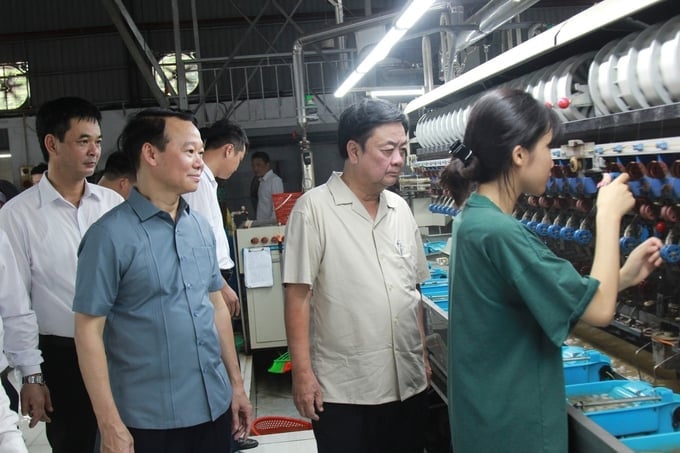
Minister Le Minh Hoan (second from right) visits the silk processing factory of Yen Bai Sericulture Joint Stock Company - which attracts hundreds of local workers. Photo: Thanh Tien.
Mr. Vu Xuan Truong, Director of Yen Bai Sericulture Joint Stock Company, said that in order for the factory to operate sustainably and effectively, the company has trained local and neighboring workers. The factory can purchase all cocoon output from silkworm farming households in Yen Bai province through signing contracts with cooperatives and traders at stable prices.
The enterprise is also coordinating with localities in the province to expand mulberry growing areas, improve the quality of labor resources, increase technical support, guide the conversion of scientific and technical advances, equipment, and silkworm raising tools for cooperatives and breeding households to increase silkworm output and quality.
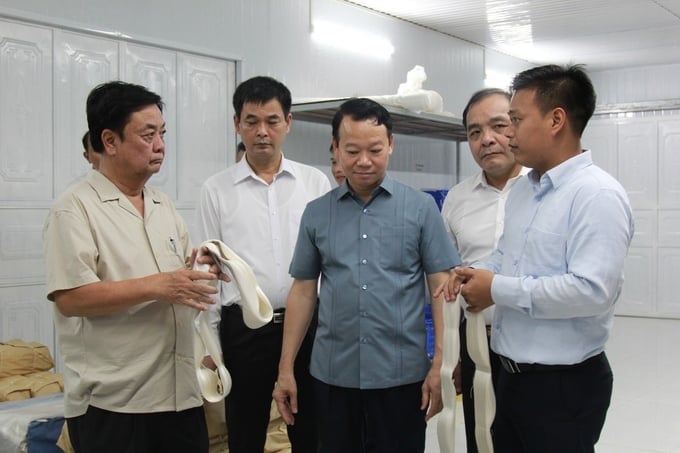
The Company's silk products are exported to India, Japan and European countries. Photo: Thanh Tien.
Currently, the total mulberry area of Tran Yen district is over 1,000 hectares, the silkworm cocoon output is 1,500 tons/year, the income value is nearly 300 billion VND. The whole district currently has 25 concentrated silkworm breeding facilities and 1,600 large silkworm breeding households; 15 cooperatives, over 100 cooperative groups with over 1,100 members have been established. In addition, 12 linkage chains have been built between cooperatives and Yen Bai Silk Joint Stock Company to produce, purchase silkworm cocoon products, and automatically reel silk.
The Secretary of the Tran Yen District Party Committee added that the average income from sericulture in the district is currently from 300 to 330 million VND/ha/year, the average profit is from 150 to 160 million VND/ha/year, 5 to 7 times higher than growing rice or other vegetables. Currently, the chain of links between cooperatives and cocoon processing enterprises is very sustainable. The company commits to purchasing cocoons for cooperatives and cooperative groups participating in the linkage, ranging from 170,000 to 210,000 VND/kg.
During his visit and work in Tran Yen district, Minister of Agriculture and Rural Development Le Minh Hoan was very happy to witness the green mulberry fields, stretching across a large area along the Red River. Along with that, the synchronous development of the transportation and irrigation systems helps people conveniently cultivate, produce and consume products.
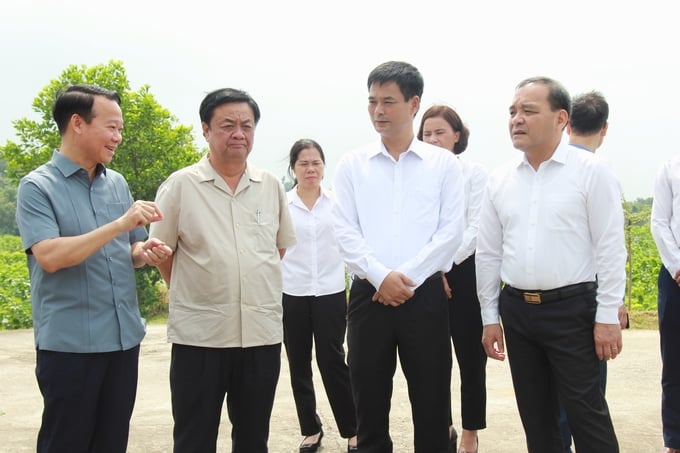
Minister Le Minh Hoan (second from left) highly appreciated the results that the silkworm industry has brought to the people of Tran Yen district. Photo: Thanh Tien.
The Minister highly appreciated the fact that a mountainous district like Tran Yen - where people used to be familiar with rice and corn - could convert to growing more than 1,000 hectares of mulberry, forming the largest silkworm growing area in the North. Income from silkworm farming is 5-7 times higher than that of rice and vegetable growing, which is something that farmers in many places dream of.
Minister Le Minh Hoan emphasized that in order for the silkworm industry to develop sustainably and increase income value per unit area, Viet Thanh commune in particular and Tran Yen district in general need to continue to make efforts, strive to maintain and develop, expand the mulberry growing and silkworm raising areas; actively apply scientific and technical advances into production to reduce labor, improve efficiency, and increase value.
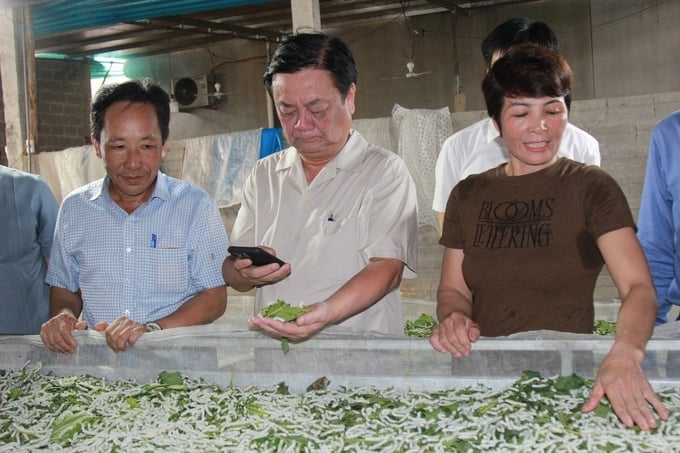
According to Minister Le Minh Hoan, localities need to exploit tourism values to increase people's income. Photo: Thanh Tien.
In addition to the values achieved in terms of cocoon output and revenue from silkworm cocoons, all levels of industry and local farmers need to exploit and optimize intangible values to increase income value. Intangible values here are the need to do a good job of promoting, introducing, and telling stories about production from the stages of mulberry planting, egg incubation, silkworm raising, silk reeling, silk weaving, etc. to attract tourists.
In craft villages, it is necessary to install large billboards to introduce the locality, people, and products, while focusing on developing organic agriculture and natural agriculture associated with developing homestay and famstay models to attract tourists. Thereby increasing the income value for the locality and sustainably developing the sericulture profession.
Currently , our country's silkworm cocoon products are mainly exported to many high-end, demanding markets such as Japan, Korea and European countries. Therefore, according to Minister Le Minh Hoan, silk products need to pay more attention to clean production, organic production, geographical indications, and traceability stamps to increase value and competitiveness in the international market.
Source: https://nongsanviet.nongnghiep.vn/nganh-dau-tam-to-can-chu-trong-hon-san-xuat-huu-co-d390556.html


![[Photo] President Luong Cuong receives Lao Prime Minister Sonexay Siphandone](https://vstatic.vietnam.vn/vietnam/resource/IMAGE/2025/4/17/337e313bae4b4961890fdf834d3fcdd5)
![[Photo] President Luong Cuong receives UN Deputy Secretary General Amina J.Mohammed](https://vstatic.vietnam.vn/vietnam/resource/IMAGE/2025/4/17/72781800ee294eeb8df59db53e80159f)
![[Photo] Warm meeting between the two First Ladies of the Prime Ministers of Vietnam and Ethiopia with visually impaired students of Nguyen Dinh Chieu School](https://vstatic.vietnam.vn/vietnam/resource/IMAGE/2025/4/17/b1a43ba73eb94fea89034e458154f7ae)
![[Photo] President Luong Cuong receives Kenyan Defense Minister Soipan Tuya](https://vstatic.vietnam.vn/vietnam/resource/IMAGE/2025/4/17/0e7a5185e8144d73af91e67e03567f41)
![[Photo] Prime Minister Pham Minh Chinh and Ethiopian Prime Minister visit Tran Quoc Pagoda](https://vstatic.vietnam.vn/vietnam/resource/IMAGE/2025/4/17/18ba6e1e73f94a618f5b5e9c1bd364a8)
![[Photo] Hundred-year-old pine trees – an attractive destination for tourists in Gia Lai](https://vstatic.vietnam.vn/vietnam/resource/IMAGE/2025/4/17/25a0b7b629294f3f89350e263863d6a3)
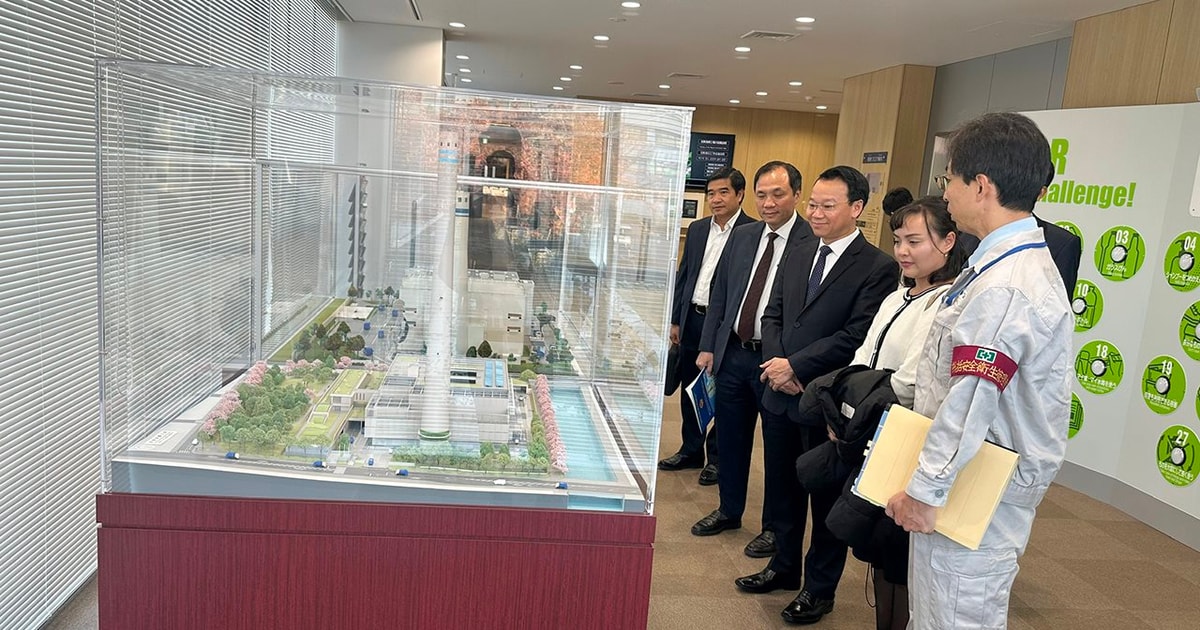

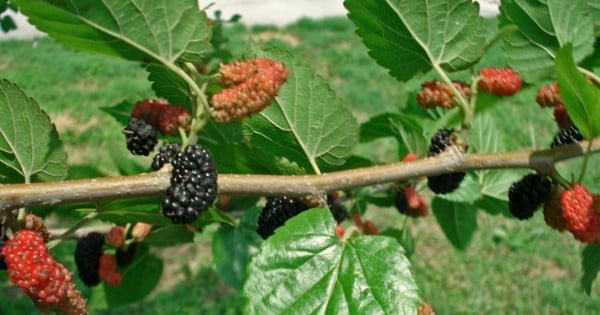



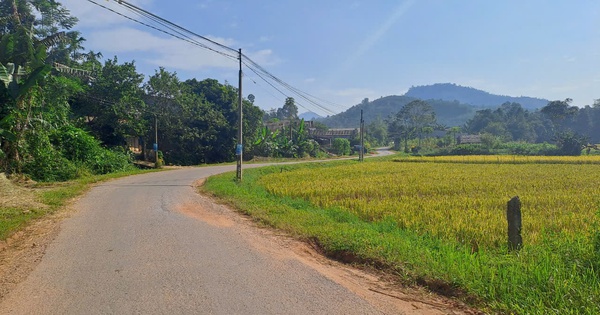

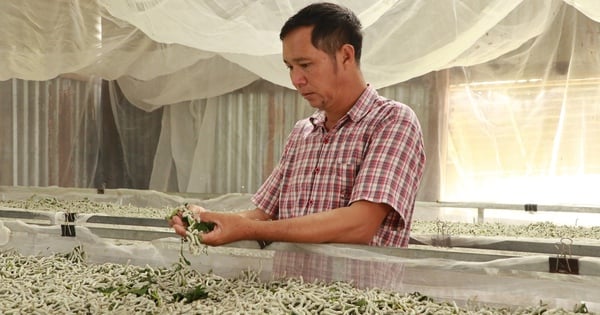
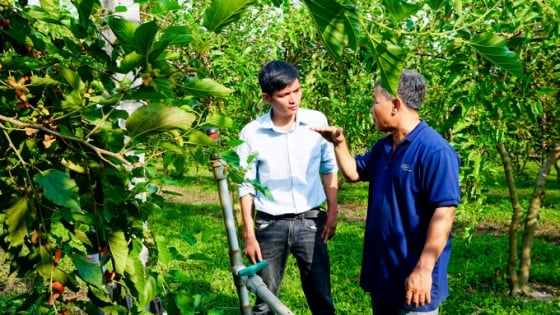


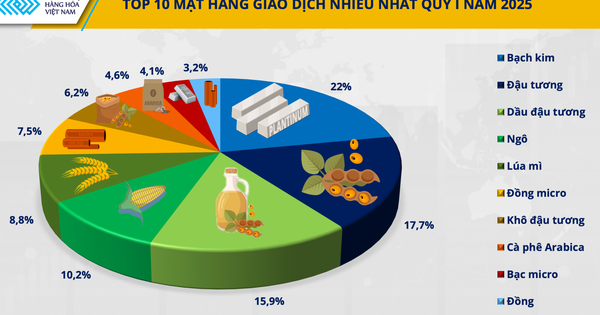

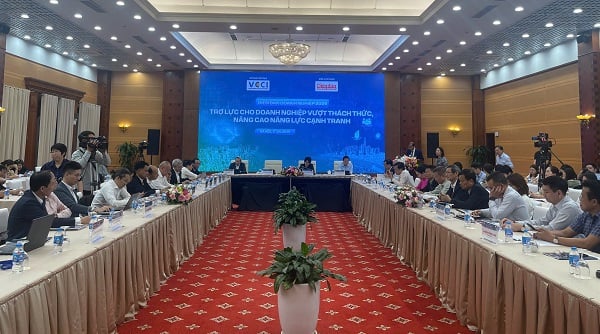
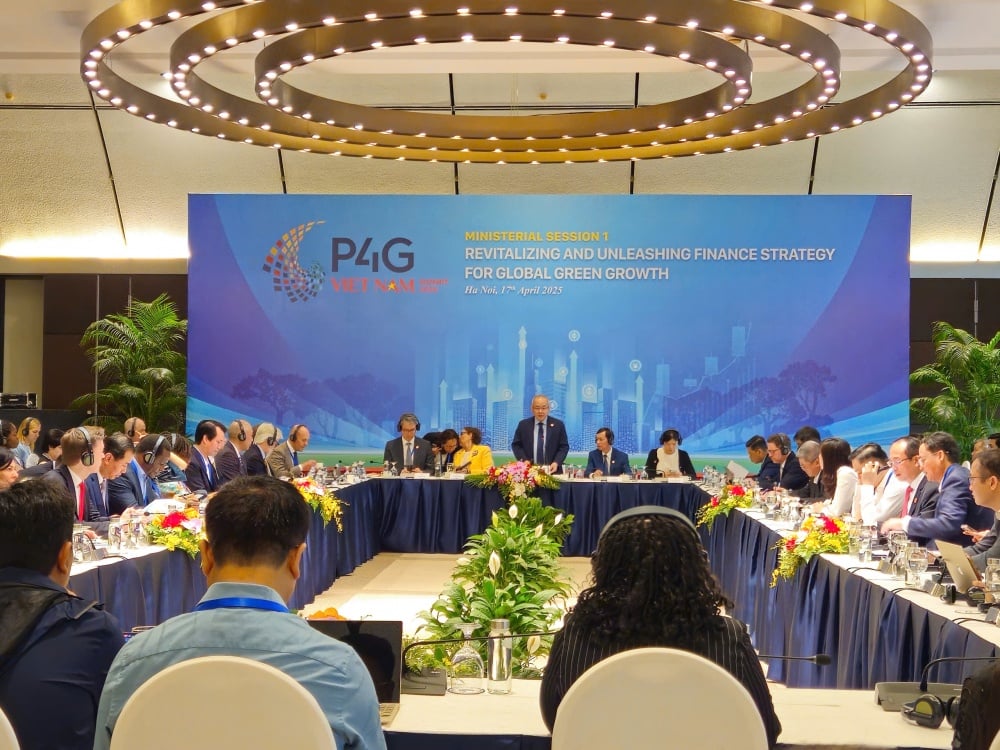




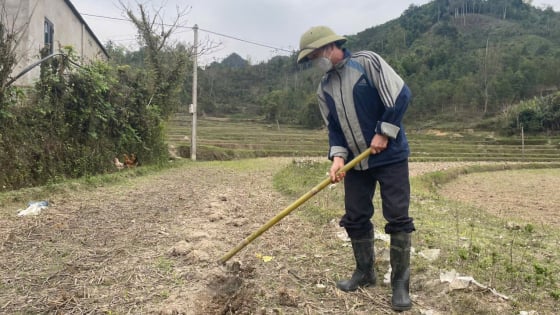
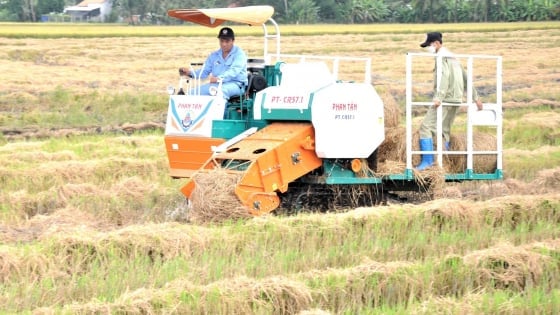

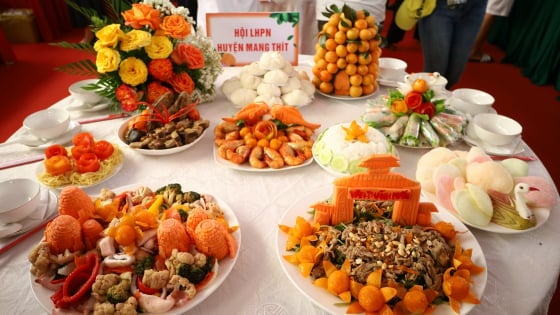
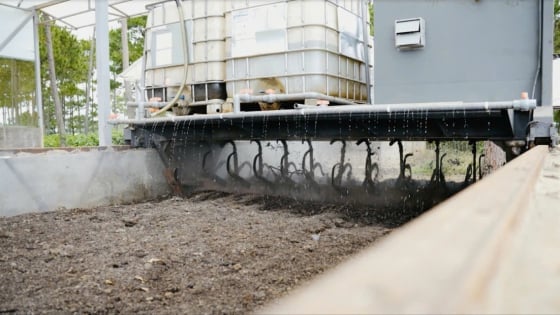
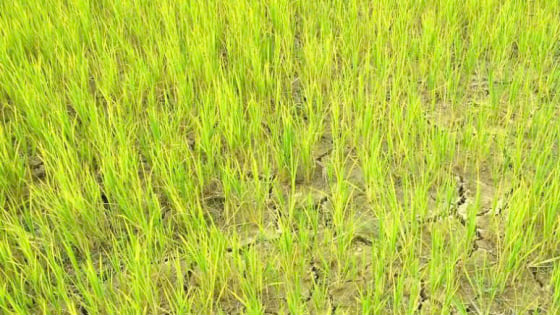








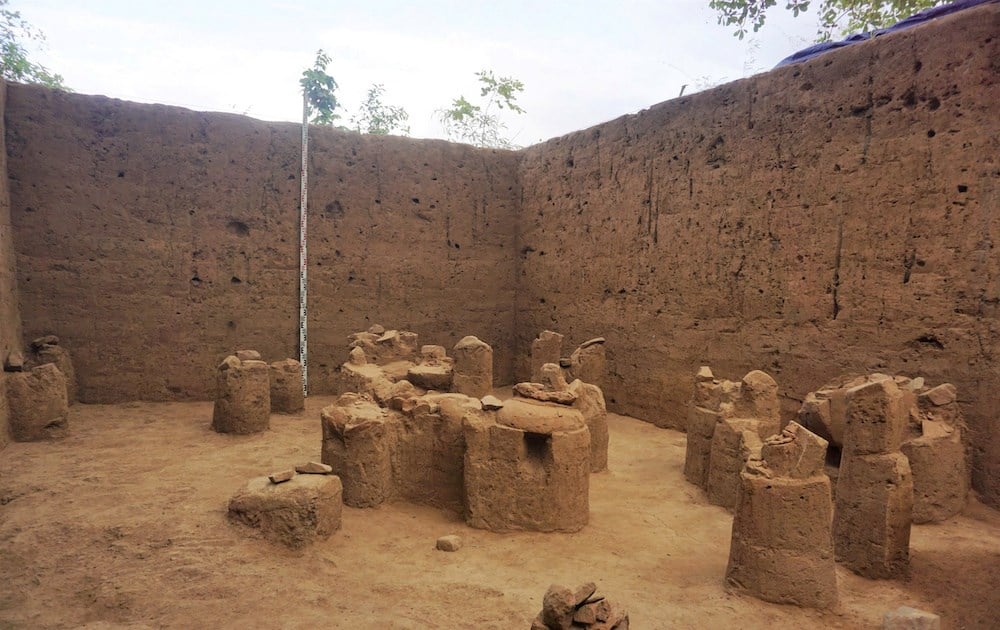




















![[Video] Viettel officially puts into operation the largest submarine optical cable line in Vietnam](https://vstatic.vietnam.vn/vietnam/resource/IMAGE/2025/4/17/f19008c6010c4a538cc422cb791ca0a1)











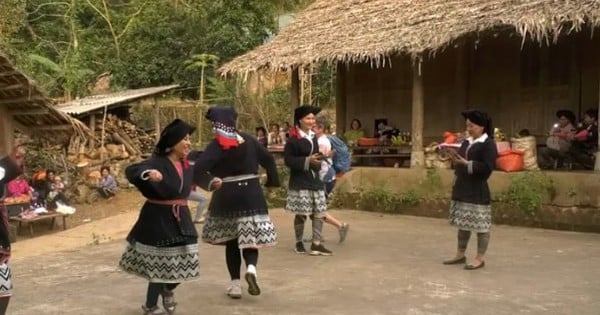

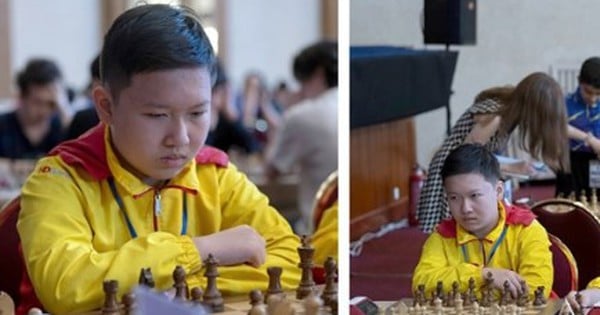

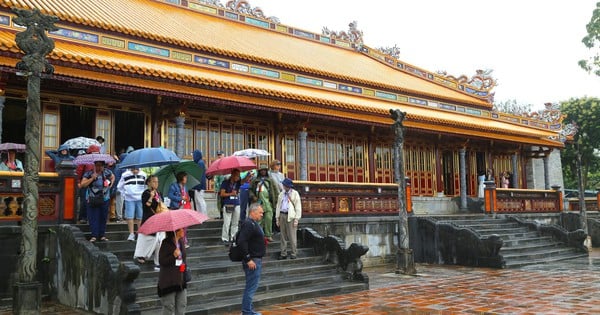
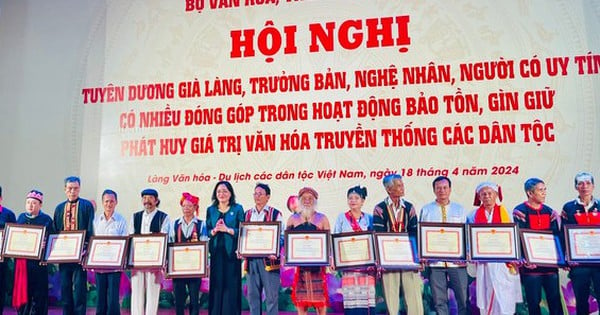
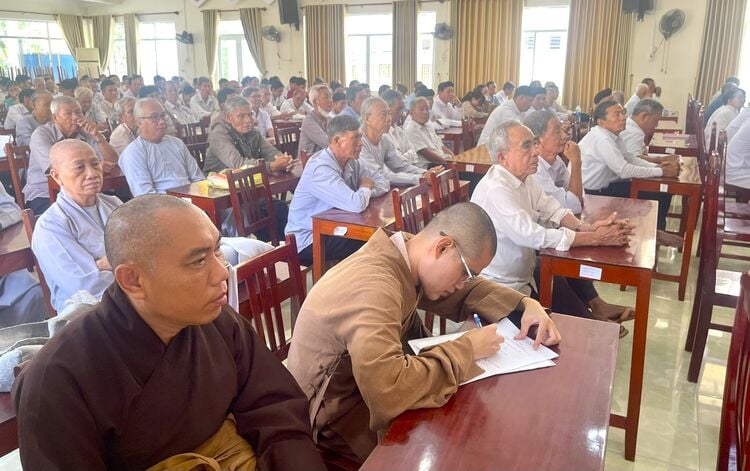

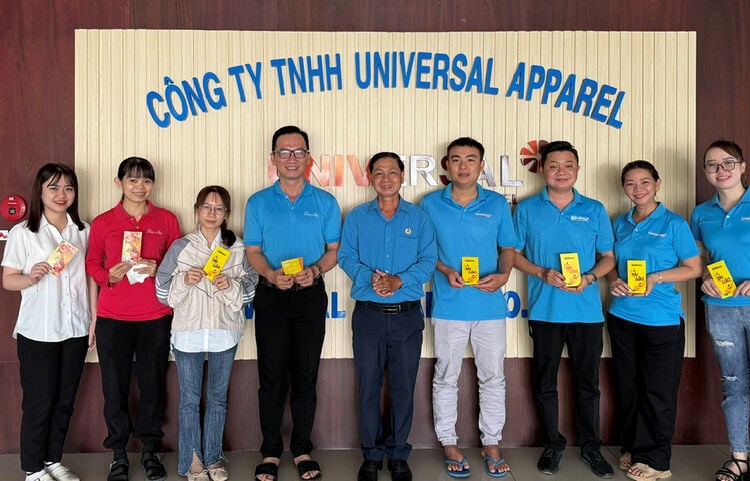
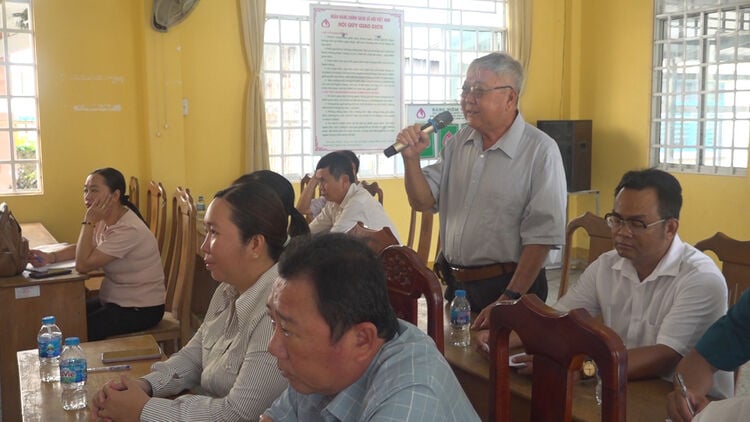




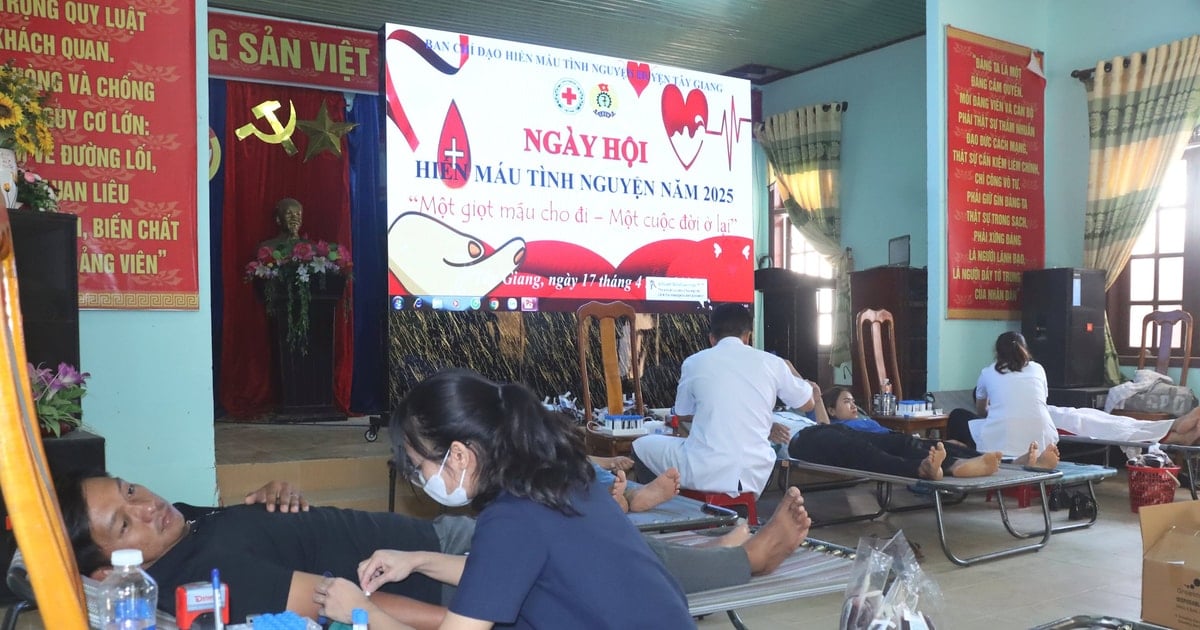












Comment (0)